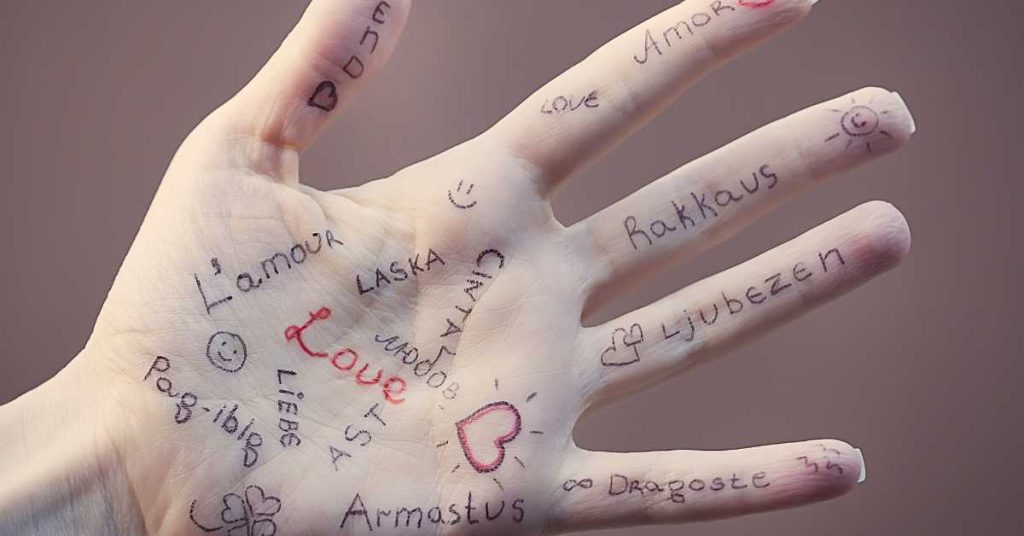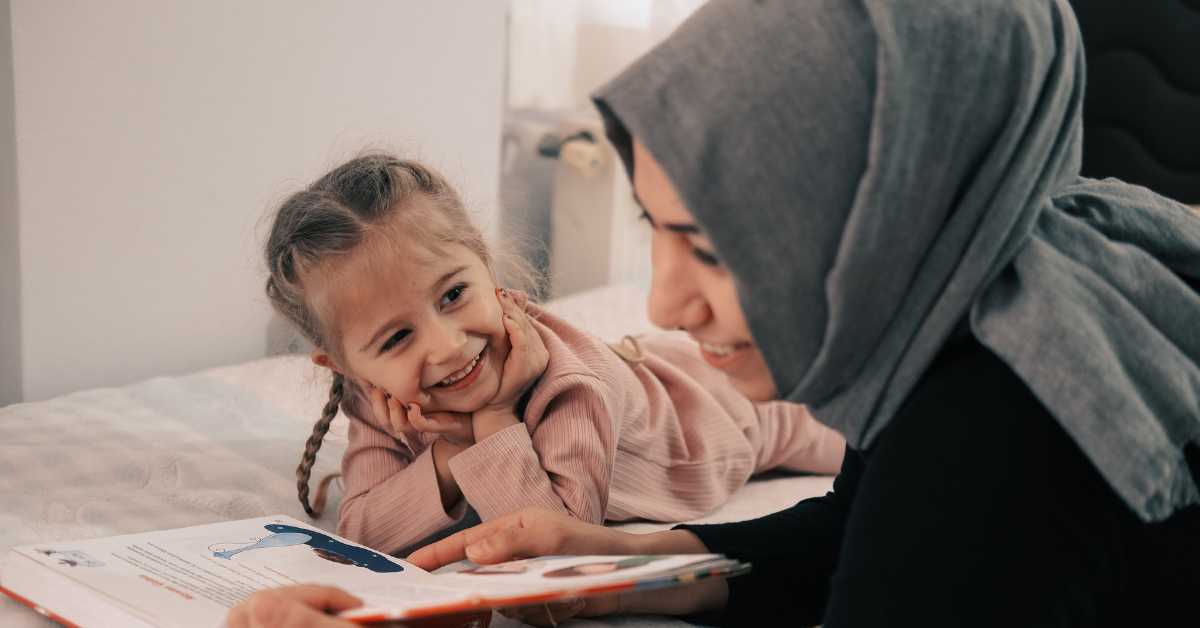This article explores the multifaceted much love meanings. From its origins and historical context to its cultural manifestations across different languages and societies, this ubiquitous expression holds a profound emotional depth that transcends barriers.
While often used as an endearing farewell or greeting, ‘much love’ carries an inherent power to convey sincerity, affection, and a sense of belonging. In today’s digital age where authentic connections can be elusive, understanding the true essence of ‘much love’ becomes even more crucial.
By examining its role in building and strengthening communities, as well as its healing potential to bring people together, we can appreciate the transformative impact of genuine love.
Furthermore, this article underscores the importance of spreading love and kindness in our everyday lives as a means to foster inclusivity and create meaningful connections with others.
Much Love Meanings: “Much love” is a heartfelt expression conveying deep affection and care. It goes beyond mere politeness, radiating warmth and genuine feelings. Whether among friends or family, this phrase encapsulates a sincere sentiment of love and goodwill.
Origins and history of the phrase ‘much love’

The phrase ‘much love’ has its origins in the English language and has a historical significance that dates back to the early 19th century. It emerged as a way to express affection, care, and goodwill towards others. The use of the word ‘love’ in this context signifies deep emotional attachment and warmth.
Over time, the phrase gained popularity and became an integral part of social interactions, particularly among close-knit communities. During the 19th century, expressions of love were often reserved for family members or intimate relationships.
However, as society evolved and interpersonal connections expanded beyond immediate circles, ‘much love’ became a way to bridge gaps between individuals and foster a sense of belonging.
It allowed people to convey their genuine feelings of affection without necessarily having a personal relationship with the recipient.
Today, ‘much love’ continues to hold cultural significance in expressing emotions towards others. It transcends geographical boundaries and is commonly used in various contexts such as social media comments, farewell messages, or even casual conversations between acquaintances. Its widespread usage reflects humanity’s inherent desire for connection and belonging.
Moving forward into the section about the cultural significance of expressing love, it is important to explore how ‘much love’ serves as not only an expression but also a symbol of unity within diverse communities.
Cultural significance of expressing love
Expressing love holds significant cultural value and plays a pivotal role in various societies worldwide. Love is a universal emotion that transcends boundaries, and its expression is deeply ingrained in human interactions.
In many cultures, demonstrating affection and care towards others is seen as an essential aspect of social cohesion and harmony. The act of expressing love can foster a sense of belonging within a community, as it reinforces interpersonal connections and strengthens relationships.
Different cultures have developed unique ways to express love, each with its own set of rituals, customs, and traditions. For example, in some Eastern cultures such as Japan, the concept of love is often associated with respect and honor for one’s elders or superiors.
Expressions of love are demonstrated through acts of service, deference, and humility. In contrast, Western cultures tend to emphasize verbal expressions of love through phrases like ‘I love you’ or physical gestures such as hugs or kisses.
Understanding these cultural nuances allows individuals to navigate diverse social contexts effectively while fostering empathy and understanding across cultures.
Recognizing that different languages and cultures may interpret ‘much love’ differently highlights the richness and diversity present in our global society.
Different interpretations of ‘much love’ in different languages and cultures

Diverse cultural and linguistic backgrounds present different perspectives on the interpretation of ‘much love,’ offering a kaleidoscope of emotional connections that enrich our understanding of human interactions.
In English-speaking cultures, the phrase ‘much love’ is often used as a casual way to express affection or goodwill towards someone.
It can be used between friends, family members, or even acquaintances. However, in other languages and cultures, the meaning of ‘much love’ can vary significantly.
For example, in Spanish-speaking cultures, the phrase ‘mucho amor’ carries a deeper connotation of romantic love. It is commonly used between partners or lovers to express strong feelings of affection and passion.
Similarly, in French-speaking cultures, the phrase ‘beaucoup d’amour’ also signifies romantic love but can also extend to close friendships and familial relationships.
In contrast, some Asian cultures have different ways of expressing love that do not necessarily involve using specific phrases like ‘much love.’ Instead, they emphasize actions and gestures as demonstrations of affection.
For instance, in Japanese culture, showing respect through bowing or providing thoughtful gifts is seen as an expression of care and consideration.
Overall, understanding the different interpretations of ‘much love’ across languages and cultures allows us to appreciate the diversity in how we communicate emotions. This exploration leads us to delve into the emotional depth and sincerity behind these phrases in our quest for meaningful connections with others.
Emotional depth and sincerity behind the phrase
Emotional depth and sincerity can be found within the phrase ‘much love,’ as it encapsulates a range of profound sentiments that foster genuine connections across diverse languages and cultures.
This expression transcends linguistic barriers and serves as a universal way to convey affection, care, and goodwill towards others. In its essence, ‘much love’ signifies the desire for emotional closeness and the intention to create lasting bonds.
It carries the weight of empathy, compassion, and understanding, emphasizing the importance of human connection in fostering a sense of belonging.
The emotional depth behind ‘much love’ lies in its ability to evoke feelings of warmth and acceptance. By using this phrase, individuals communicate their willingness to open themselves up emotionally, creating an environment where vulnerability is embraced.
Furthermore, ‘much love’ implies not only an abundance of affection but also a genuine concern for the well-being of others.
Transitioning into the subsequent section about expressing love through actions and words without explicitly stating ‘step’, it is important to note that while language plays a significant role in conveying emotions, actions often speak louder than words.
Expressing love goes beyond verbal expressions; it encompasses acts of kindness, supportiveness, and consideration that demonstrate one’s commitment to nurturing relationships.
Expressing love through actions and words

Actions and verbal affirmations are essential components in conveying affection and fostering meaningful connections.
Expressing love through both actions and words allows individuals to communicate their feelings, creating a sense of emotional depth and sincerity.
Actions such as acts of kindness, support, and selflessness demonstrate care and concern for others. These gestures can include small everyday actions like making breakfast for a loved one or going out of one’s way to help someone in need.
Verbal affirmations, on the other hand, involve expressing love through words such as ‘I love you’ or ‘You mean the world to me.’ These declarations serve to validate emotions and make the recipient feel valued.
By combining both actions and verbal affirmations, individuals can effectively express their love and strengthen their relationships. This combination creates a powerful synergy that fosters trust, intimacy, and connection between individuals.
It demonstrates that one is willing to go beyond mere words by translating them into tangible acts of care and support.
The power of love in fostering connections and relationships extends far beyond individual interactions. It has the potential to create a ripple effect within communities by promoting empathy, compassion, and understanding among people from diverse backgrounds.
Love serves as a catalyst for unity and belonging, bringing people together despite their differences.
Expressing love through both actions and words plays a pivotal role in building meaningful connections with others. By demonstrating affection through tangible acts of kindness while also verbally affirming our feelings, we foster trust, intimacy, and connection with those around us.
The power of this expression extends beyond personal relationships; it has the ability to transform communities by promoting empathy and understanding among diverse groups of people without requiring any specific steps to be followed explicitly.
The power of love in fostering connections and relationships
The influence of love in cultivating connections and relationships is far-reaching, as it has the potential to unite individuals from diverse backgrounds and foster empathy and understanding.
Love acts as a powerful force that transcends boundaries, enabling people to form deep emotional bonds with one another. When love is present, individuals are more likely to engage in acts of kindness, support, and sacrifice for each other’s well-being. This creates an atmosphere of trust and security, allowing relationships to flourish.
Love also plays a crucial role in fostering empathy and understanding. By genuinely caring for someone, individuals become more attuned to their needs and emotions.
This heightened sensitivity leads to greater compassion and the ability to see situations from different perspectives. As a result, conflicts can be resolved more effectively through open communication and compromise.
Furthermore, love encourages individuals to embrace diversity and appreciate the unique qualities of others. It breaks down barriers created by prejudice or differences in culture, religion, or upbringing.
Through love’s transformative power, people learn acceptance and tolerance towards others who may not share the same beliefs or values.
Love holds immense power when it comes to fostering connections and nurturing relationships. Its ability to bring people together regardless of their background cultivates empathy and understanding among individuals.
As we explore further into the topic of ‘the role of love in personal growth and self-acceptance,’ we will see how this transformative force extends beyond interpersonal connections into one’s relationship with oneself.
The role of love in personal growth and self-acceptance

Love’s profound impact on personal growth and self-acceptance can be seen through its ability to inspire individuals to embrace vulnerability and strive for continual self-improvement.
Love has the power to create an environment of acceptance, where individuals feel safe enough to explore their true selves without fear of judgment or rejection.
This sense of acceptance allows people to develop a deeper understanding and appreciation of who they are, leading to personal growth.
When love is present in one’s life, it encourages individuals to confront their insecurities and face their fears. Love provides a supportive framework that nurtures personal development by fostering an atmosphere of trust and encouragement.
Through this process, people are empowered to take risks, challenge themselves, and pursue their goals with confidence.
Furthermore, love promotes self-acceptance by emphasizing the importance of embracing one’s strengths and weaknesses. It teaches individuals that imperfections are not flaws but rather unique aspects that contribute to their individuality.
By accepting oneself fully, people can cultivate a positive self-image, which in turn leads to increased self-esteem and overall well-being.
Love plays a crucial role in personal growth and self-acceptance as it inspires vulnerability and continual improvement. Its ability to create an environment of acceptance enables individuals to explore their true selves without judgment or fear.
This exploration fosters personal development by encouraging individuals to confront insecurities, face fears, take risks, and pursue goals confidently. Love also promotes self-acceptance by emphasizing the importance of embracing strengths and weaknesses alike.
Consequently, love serves as a catalyst for personal growth while contributing positively to an individual’s overall well-being.
Transitioning into the subsequent section about ‘love as a universal language,’ it is important…
Love as a universal language
Universal understanding and connection can be fostered through the language of love. Love, as a universal language, has the power to transcend cultural barriers, creating a sense of belonging and unity among individuals from diverse backgrounds.
It is an innate emotion that is deeply rooted in human nature, allowing us to connect with others on a profound level. Love transcends words and can be expressed through acts of kindness, empathy, and compassion.
When we approach others with love, we acknowledge their worth and value as fellow human beings. The language of love promotes inclusivity and acceptance by recognizing our shared humanity rather than focusing on differences.
It allows us to empathize with others’ experiences and emotions, fostering mutual understanding and respect. Through love, we can bridge gaps in communication that may arise due to language or cultural barriers.
However, it is important to note that the concept of ‘much love’ can sometimes be misconstrued or misunderstood. Some may interpret it as insincere or superficial if not accompanied by genuine actions or intentions.
In the subsequent section about misconceptions and misconstrued meanings of ‘much love’, we will explore this further.
Misconceptions and misconstrued meanings of ‘much love’

Misunderstandings and misinterpretations surrounding the expression ‘much love’ can lead to confusion and skepticism regarding its genuine intentions.
In a world where communication is increasingly reliant on digital platforms, the true meaning behind ‘much love’ can become convoluted.
Some individuals may perceive it as insincere or superficial, dismissing it as a mere formality rather than an authentic expression of affection. Others may view it as an intimate proclamation of deep care and compassion.
The ambiguity lies in the fact that ‘much love’ lacks specificity and context, making it susceptible to various interpretations.
One common misconception is that ‘much love’ is solely reserved for romantic relationships. While this interpretation does hold some truth, it fails to acknowledge that ‘much love’ can also be used in platonic relationships or even within communities at large.
In these contexts, ‘much love’ serves as a way to foster connection, unity, and support among individuals who share common goals or values.
By understanding the multifaceted nature of ‘much love,’ we can appreciate its versatility across different relationships and contexts.
Whether expressed between partners, friends, or community members, ‘much love’ carries the potential to create a sense of belonging while establishing emotional bonds rooted in care and empathy.
How ‘much love’ can be used in various contexts and relationships
The previous subtopic explored the misconceptions and misconstrued meanings of the phrase ‘much love.’ It sheds light on how this expression is often misunderstood and misinterpreted, leading to confusion and potential misunderstandings in relationships.
However, it is essential to recognize that ‘much love’ can be used in various contexts and relationships, beyond its commonly mistaken romantic connotation.
This phrase can be utilized to express affection and care not only towards romantic partners but also friends, family members, or even acquaintances. Its versatility allows individuals to convey warmth, support, and goodwill in different situations.
In friendships, saying ‘much love’ can strengthen the bond between friends by expressing deep care and appreciation for each other. Similarly, within families, this phrase can reinforce familial ties by affirming love within the household.
Moreover, using ‘much love’ with acquaintances or colleagues can foster a sense of belongingness within professional networks or social circles.
Understanding how ‘much love’ can be employed across various contexts helps avoid misunderstandings while promoting positive connections among individuals. By recognizing its multifaceted nature, people become more attuned to expressing their emotions genuinely and appropriately.
Moving forward into the next section about the impact of expressing love on mental and emotional well-being.
The impact of expressing love on mental and emotional well-being

Expressing affection and care towards others has a significant impact on one’s mental and emotional well-being.
Research has consistently shown that engaging in acts of love and kindness can enhance overall psychological functioning, leading to improved mood, reduced stress levels, and increased feelings of happiness.
When individuals express love towards others, it stimulates the release of oxytocin, a hormone that promotes bonding and social connection. This not only strengthens existing relationships but also fosters new connections, creating a sense of belonging and support.
Moreover, expressing love allows individuals to experience gratitude and appreciation for their loved ones. By acknowledging the positive qualities in others and expressing admiration for them, individuals cultivate a more positive mindset.
This shift in perspective can help combat negative thoughts or self-doubt and contribute to higher self-esteem.
Furthermore, when people openly express love, it creates a reciprocal cycle of affection within relationships. The act of giving love generates feelings of being valued and cared for in return.
This mutual exchange reinforces emotional bonds between individuals and contributes to overall relationship satisfaction.
Expressing affection and care towards others positively impacts one’s mental and emotional well-being by promoting social connection, fostering gratitude, enhancing self-esteem, and strengthening interpersonal relationships.
Transitioning into the subsequent section about ‘the healing power of love’ emphasizes how these effects extend beyond individual well-being to create unity among people from diverse backgrounds without writing ‘step’.
The healing power of love and its ability to bring people together
Expressing love not only has a significant impact on our mental and emotional well-being, but it also possesses the remarkable ability to heal and bring people together. Love has long been recognized as a powerful force that transcends boundaries, uniting individuals in profound ways.
It is through love that we can find solace, support, and a sense of belonging in our lives. Love’s healing power lies in its ability to nurture and restore.
When we experience love, whether from romantic partners, family members, or friends, our bodies release oxytocin a hormone known for promoting feelings of trust and bonding.
This surge of oxytocin can have positive effects on both physical and psychological health by reducing stress levels, boosting immune function, and enhancing overall well-being.
Further emphasizing the unifying nature of love is its capacity to bring people together. Love creates an environment where individuals feel safe to express themselves authentically without fear of judgment or rejection. In this space of acceptance and understanding, connections are formed that go beyond superficiality or pretense.
As we navigate an increasingly digital age characterized by virtual interactions and online relationships, the importance of genuine love and authentic connections becomes even more crucial.
These real connections provide us with a sense of belonging in an often disconnected world, fostering emotional resilience and overall happiness.
Related Article: MANY LOVE OR MUCH LOVE WHAT’S THE MAJOR DIFFERENCE
The importance of genuine love and authentic connections in a digital age

In an era dominated by technology and virtual interactions, the significance of authentic connections and genuine love cannot be overstated.
As individuals increasingly rely on digital platforms for communication and socialization, there is a growing need for meaningful relationships that transcend the limitations of screens.
Genuine love involves a deep sense of care, empathy, and support for others, creating bonds that go beyond superficialities. It requires vulnerability and active engagement, fostering trust and intimacy.
In a society where online personas can be carefully curated and manipulated, it is crucial to cultivate authenticity in our interactions.
Authentic connections have the power to combat feelings of isolation and disconnection that often arise from excessive reliance on technology. They provide individuals with a sense of belonging and validation, allowing them to feel seen and heard in a world that can sometimes feel overwhelming.
These connections also foster empathy and understanding, as they require active listening and emotional attunement.
Transition: The role of ‘much love’ in building and strengthening communities goes hand in hand with the importance of authentic connections in today’s digital age.
The role of ‘much love’ in building and strengthening communities
In our digital age, where social interactions are increasingly taking place online, the importance of genuine love and authentic connections cannot be overstated. These connections provide individuals with a sense of belonging and contribute to the formation of strong communities.
One way in which this can be achieved is through the expression of ‘much love,’ a phrase that has gained popularity as a means to convey affection and support.
When individuals within a community express ‘much love’ towards one another, it fosters an environment where people feel valued, heard, and understood. This creates a bond between individuals that extends beyond superficial interactions and promotes deeper relationships built on trust and mutual respect.
In turn, these strong connections strengthen the community as a whole by fostering collaboration, cooperation, and collective action towards shared goals.
By embracing the concept of ‘much love‘ as a guiding principle in our interactions with others, we have the opportunity to not only build but also sustain thriving communities.
We must recognize the power of expressing affection and support towards one another in creating an inclusive environment that celebrates diversity and fosters personal growth.
Transitioning into the subsequent section about ‘spreading love and kindness in everyday life,’ it is important to explore how these principles can be applied on an individual level to make a positive impact on society.
Spreading love and kindness in everyday life

Promoting acts of kindness and compassion in daily interactions can have a profound impact on fostering positive social connections and building a more empathetic society.
In our fast-paced and often disconnected world, taking the time to spread love and kindness in everyday life is crucial for creating a sense of belonging and community.
Simple gestures of goodwill, such as offering a smile or holding the door open for someone, can make a significant difference in how individuals feel valued and included. These small acts not only brighten someone’s day but also contribute to the overall positivity within communities.
By consciously choosing to spread love and kindness, individuals create an environment where empathy thrives, leading to stronger relationships among members of society.
Furthermore, by engaging in acts of love and kindness regularly, individuals become role models for others to follow. This ripple effect can inspire others to adopt similar behaviors, resulting in a collective effort toward building a more compassionate society.
It is through these everyday interactions that we cultivate an atmosphere of care and support for one another.
Spreading love and kindness in everyday life is essential for fostering positive social connections and building an empathetic society. By promoting acts of compassion through simple gestures, individuals contribute to creating a sense of belonging within their communities.
Furthermore, by being role models themselves, they inspire others to partake in this cycle of generosity. Ultimately, it is through these actions that we pave the way towards a more harmonious and understanding world.
FAQs About Much Love Meanings:
Q:1 How did the phrase ‘much love’ originate and what is its historical significance?
The phrase ‘much love’ originated as a way to convey affection and goodwill towards others. Its historical significance lies in its role as a common expression of warmth and caring, fostering a sense of connection and belonging among individuals.
Q:2 How does expressing love vary across different cultures and what are some unique cultural traditions associated with it?
Expressing love varies across cultures and is influenced by cultural traditions. For example, in Japan, people often express love through actions rather than words. In India, the exchange of flower garlands symbolizes love and unity.
Q:3 Can the phrase ‘much love’ be translated into different languages and does it carry the same meaning and emotional depth?
The phrase “much love” can be translated into different languages, although the exact translation may vary. However, it generally carries a similar meaning of expressing affection and emotional depth across cultures.
Q:4 What is the emotional depth and sincerity behind using the phrase ‘much love’ to express affection?
The phrase ‘much love’ is often used to express affection and convey emotional depth. It signifies a genuine sentiment of care and warmth towards the recipient, fostering a sense of connection and belonging in the relationship.
Q:5 How can love be expressed through actions and words, and what are some effective ways to convey love to others?
Love can be expressed through actions and words by showing kindness, support, and understanding. Effective ways to convey love include active listening, verbal affirmations, acts of service, and physical affection. These gestures foster a sense of connection and belonging.
Conclusion:
In conclusion, the phrase ‘much love’ carries deep emotional significance and has a long history of cultural importance.
It is a powerful way to express love and affection in various languages and cultures, transcending barriers and bringing people together.
Love, both expressed through words and demonstrated through actions, has the ability to heal, strengthen communities, and spread kindness in everyday life.
In today’s digital age, genuine love and authentic connections are more important than ever. Let us continue to spread love and cultivate meaningful relationships for a better world.
We hope you will be well aware of Much Love Meanings, after reading this comprehensive article. If you have any questions, feel free to comment below!
